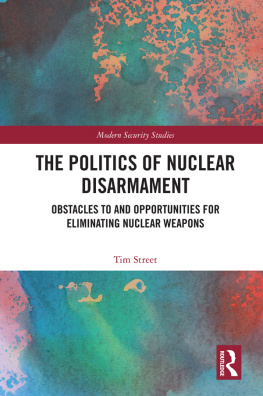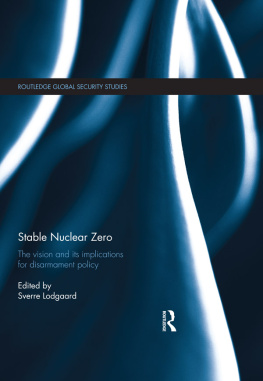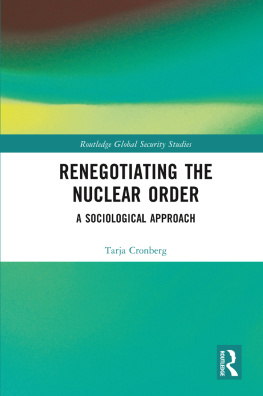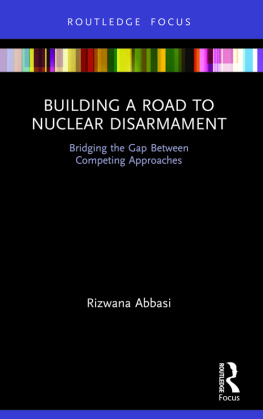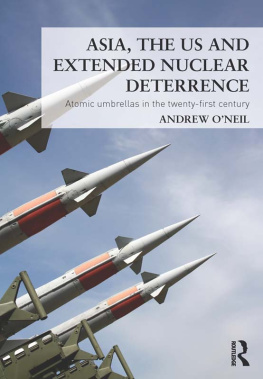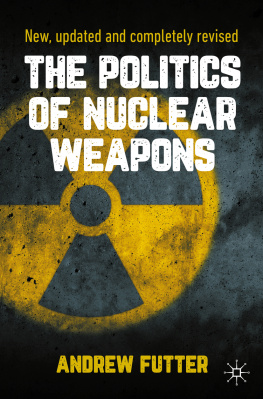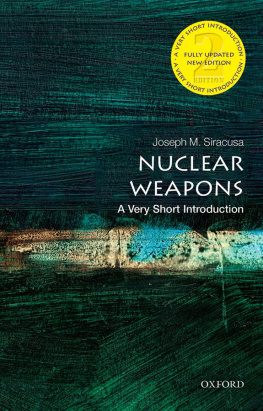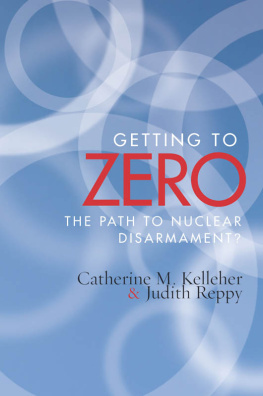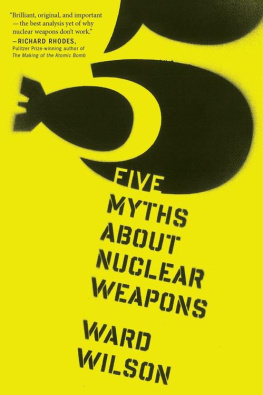The Politics of Nuclear Disarmament
This book explores what political conditions must be established and what obstacles overcome for the five official Nuclear Weapon States (NWS)China, France, Russia, the UK and USto eliminate their nuclear weapons.
The different views and positions of a range of actors concerning nuclear weapons issuesincluding elite perspectives and public opinionand the political assumptions underpinning them, are discussed to develop a more democratic approach to disarmament. Addressing the lack of detailed analysis concerning the meaning of nuclear disarmament for the domestic political orders of NWS, the book critically explores different approaches to and theories of disarmament within legal, political and technical literatures and orthodox and critical theory. It also builds on previous discussions of nuclear possession, restraint, arms control, and disarmamentconcerning both nuclear possessor and non-possessor statesidentifying the insights these works provide regarding how NWS disarmament may be advanced.
Contributing to theoretical debates concerning how domestic politics interacts with and determines states international behaviour, the book will be of interest to all scholars and students of history, politics, international relations, security studies, military history, war studies, peace studies, conflict, democracy, and global governance.
Tim Street is a researcher and activist based in Chelmsford and Oxford.
Modern Security Studies
Series editors: Sean S. Costigan and Kenneth W. Estes
This series fills a known gap in modern security studies literature by pursuing a curated, forward-looking editorial approach on looming and evergreen security challenges. Short and long form works will be considered with an eye towards developing content that is widely suitable for instruction and research alike. Works adhere around the series four main categories: Controversies, Cases, Trends and Primers. We invite proposals that pay particular attention to controversies in international security, notably those that have resulted in newly exposed and poorly defined risks to non-state legitimacy, international or state capacities to act, and shifts in global governance. Case studies should examine recent historical events and security-related actions that have altered present day understanding or political calculations. Trends will need to detail future yet tangible concerns in a five to ten year timeframe. Authors are also invited to submit proposals to our primers category for short form works on key topics that are referenced and taught throughout security studies.
For more information about this series, please visit: www.routledge.com/ politics/series/ASHSER1437
Verifying Nuclear Disarmament
Thomas Shea
NATOs Democratic Retrenchment
Hegemony after the Return of History
Henrik B. L. Larsen
The Politics and Technology of Cyberspace
Danny Steed
Post-Cold War Anglo-American Military Intervention
A Study of the Dynamics of Legality and Legitimacy
James F.D. Fiddes
Nuclear Modernization in the 21st Century
Edited by Aiden Warren and Philip M. Baxter
The Politics of Nuclear Disarmament
Obstacles to and Opportunities for Eliminating Nuclear Weapons
Tim Street
The Politics of Nuclear Disarmament
Obstacles to and Opportunities for Eliminating Nuclear Weapons
Tim Street
First published 2021
by Routledge
2 Park Square, Milton Park, Abingdon, Oxon OX14 4RN
and by Routledge
52 Vanderbilt Avenue, New York, NY 10017
Routledge is an imprint of the Taylor & Francis Group, an informa business
2021 Tim Street
The right of Tim Street to be identified as author of this work has been asserted by him in accordance with sections 77 and 78 of the Copyright, Designs and Patents Act 1988.
All rights reserved. No part of this book may be reprinted or reproduced or utilised in any form or by any electronic, mechanical, or other means, now known or hereafter invented, including photocopying and recording, or in any information storage or retrieval system, without permission in writing from the publishers.
Trademark notice: Product or corporate names may be trademarks or registered trademarks, and are used only for identification and explanation without intent to infringe.
British Library Cataloguing-in-Publication Data
A catalogue record for this book is available from the British Library
Library of Congress Cataloging-in-Publication Data
A catalog record has been requested for this book
ISBN: 978-0-367-49129-1 (hbk)
ISBN: 978-0-367-74376-5 (pbk)
ISBN: 978-1-00-304469-7 (ebk)
Typeset in Times New Roman
by Newgen Publishing UK
Contents
Tim Street is a researcher and activist based in Oxford. Tim has worked on peace and disarmament issues since 2005 with a range of groups including Campaign Against Arms Trade, the International Campaign to Abolish Nuclear Weapons, British American Security Information Council, Conscience and Drone Wars UK. Tim recently completed his PhD exploring the politics of nuclear disarmament at Warwick University. He is an Associate Fellow with Oxford Research Group and a board member of Nuclear Information Service.
The official nuclear weapon states (NWS) under the nuclear non-proliferation treaty (NPT) are China, France, Russia, the UK and US. The NPT defines an NWS as a state which has manufactured and exploded a nuclear weapon or other nuclear explosive device prior to 1 January 1967. Member states of the NPT without nuclear weapons are known as non-nuclear weapon states (NNWS). The designation of former nuclear weapon state (FNWS) is used to refer to NWS that in future complete the disarmament process, for the political and technical reasons explained below. The four nuclear-armed states (NAS) that are not members of the NPT are Israel, North Korea, India and Pakistan. The NWS and NAS are collectively referred to as nuclear weapon possessor states (NPS).
Note
| A2/AD | Anti-access and area denial |
| ABMT | Anti-ballistic missile treaty |
| AI | Artificial intelligence |
| AWE | Atomic Weapons Establishment |
| AWS | Autonomous weapon systems |
| BASIC | British American Security Information Council |
| BMD | Ballistic missile defense |
| CCP | Chinese Communist Party |
| CEA | Commissariat lnergie atomique |
| CFE | Treaty on Conventional Armed Forces in Europe |
| CND | Campaign for Nuclear Disarmament |
| CPGS | Conventional prompt global strike |
| CTBT | Comprehensive test ban treaty |
| DOD | Department of Defense |
| DOE | Department of Environment |
| EU | European Union |
| FMCT | Fissile material cut-off treaty |
| FNWS | Former nuclear weapon state |

